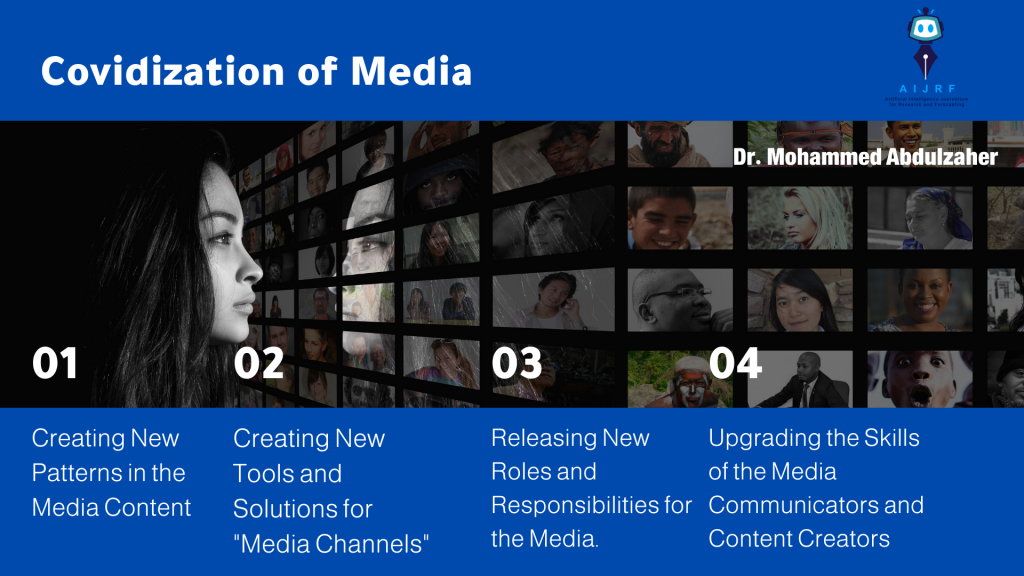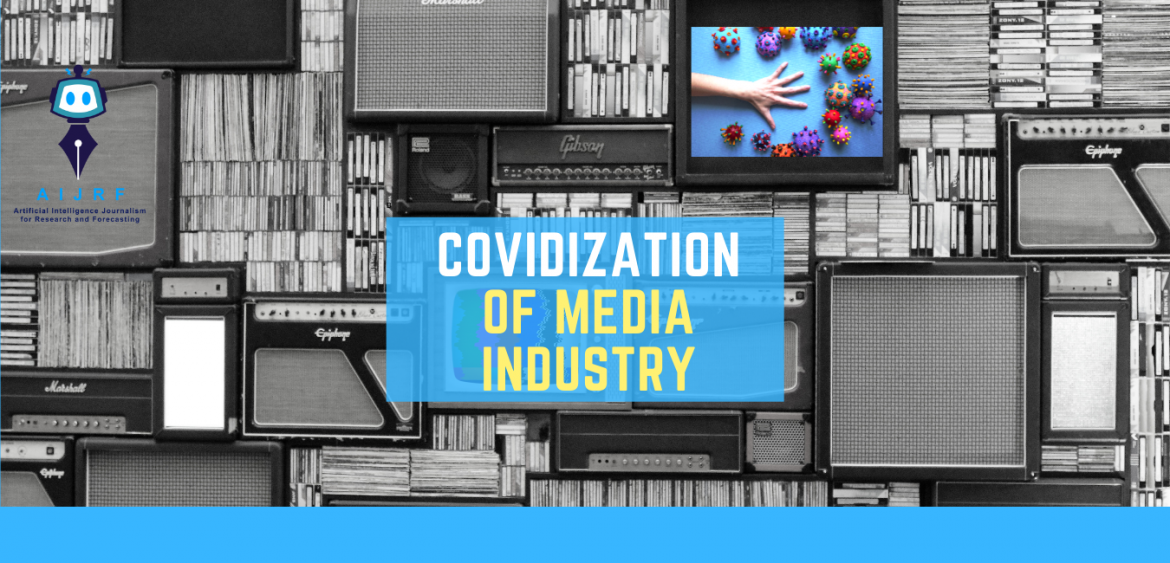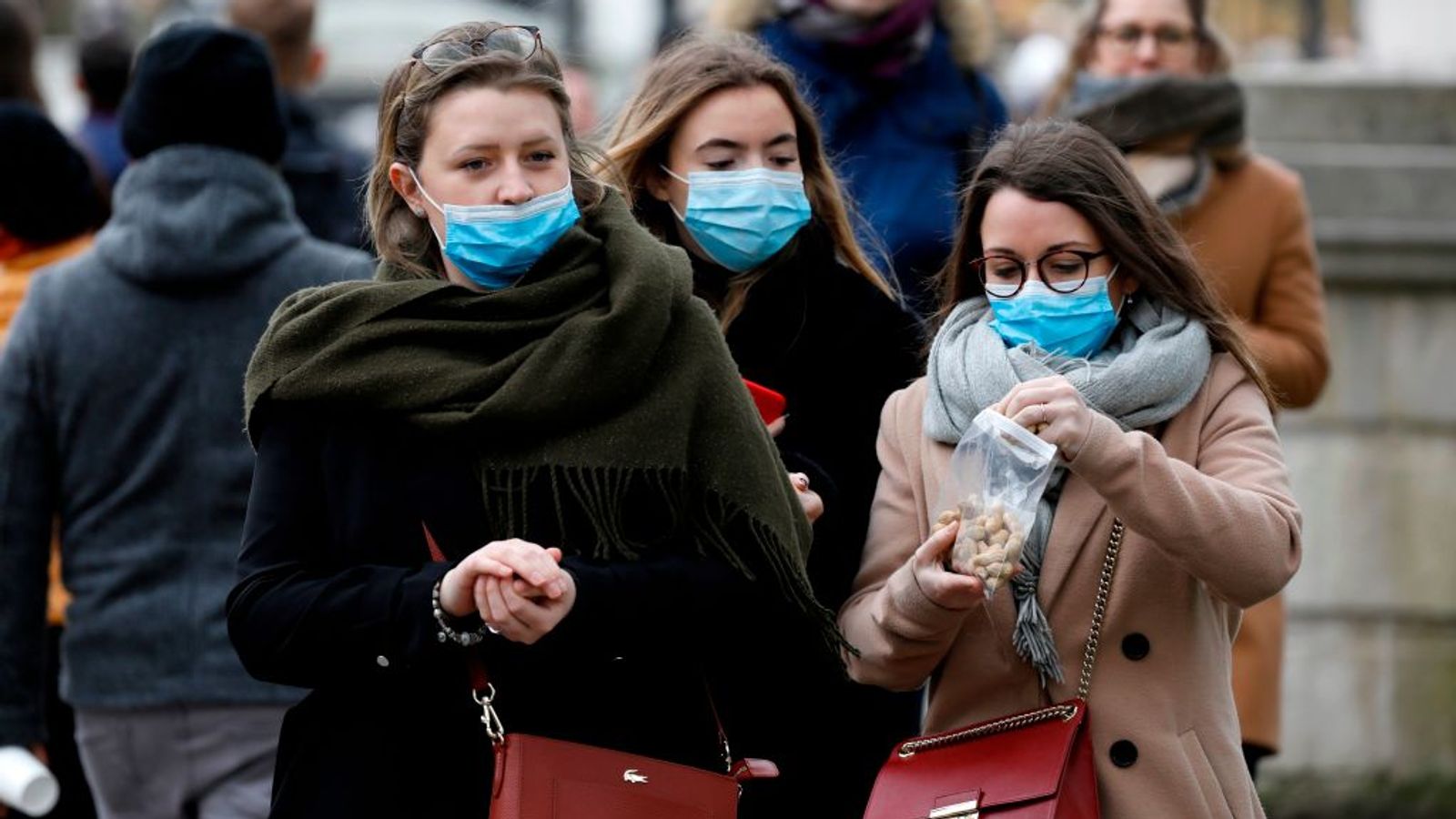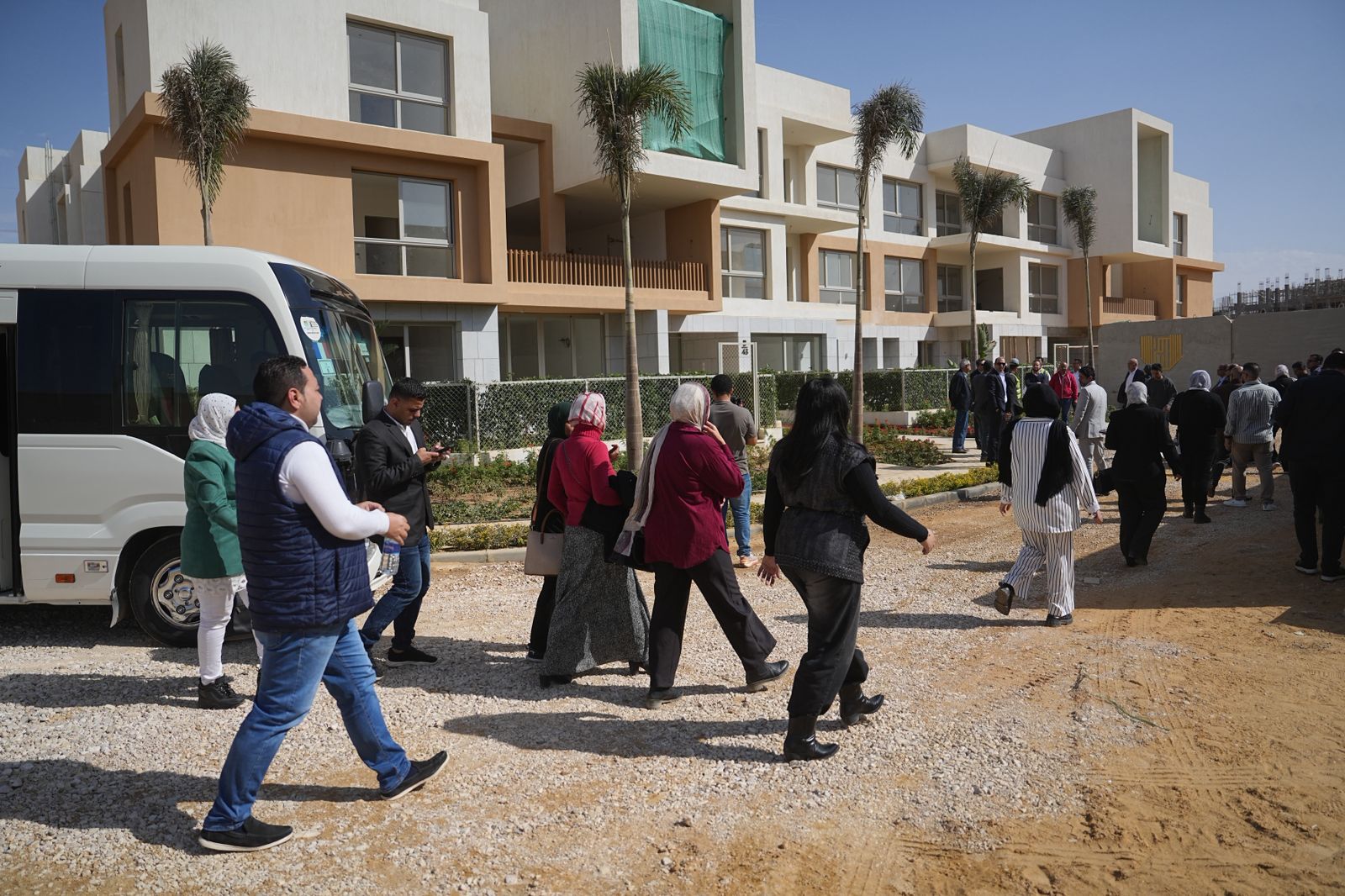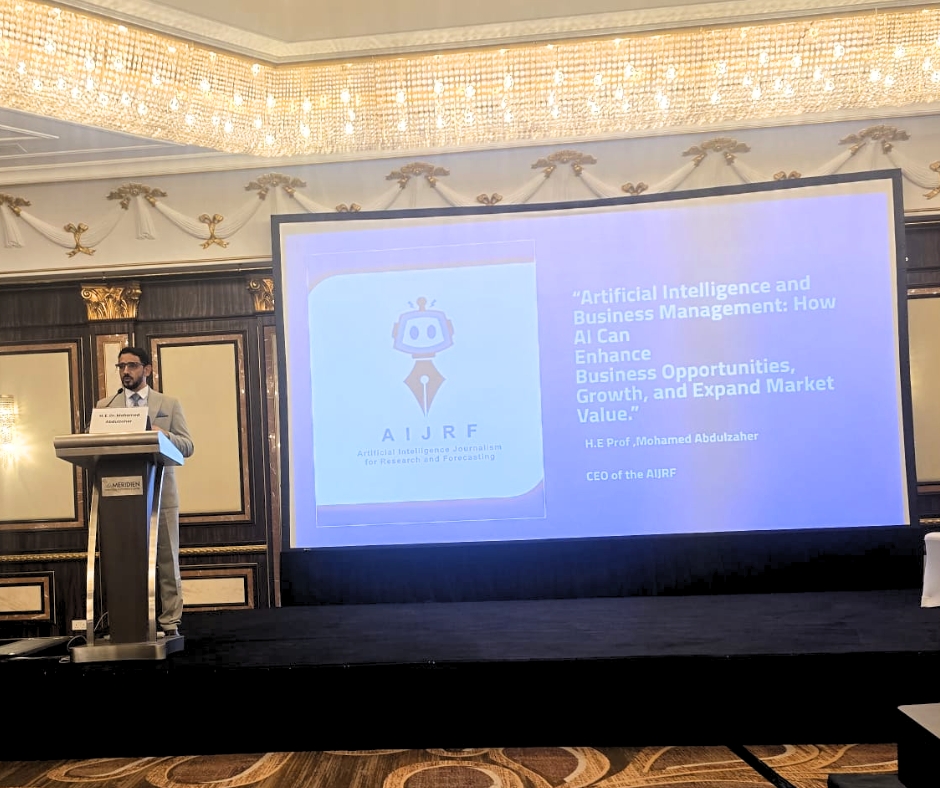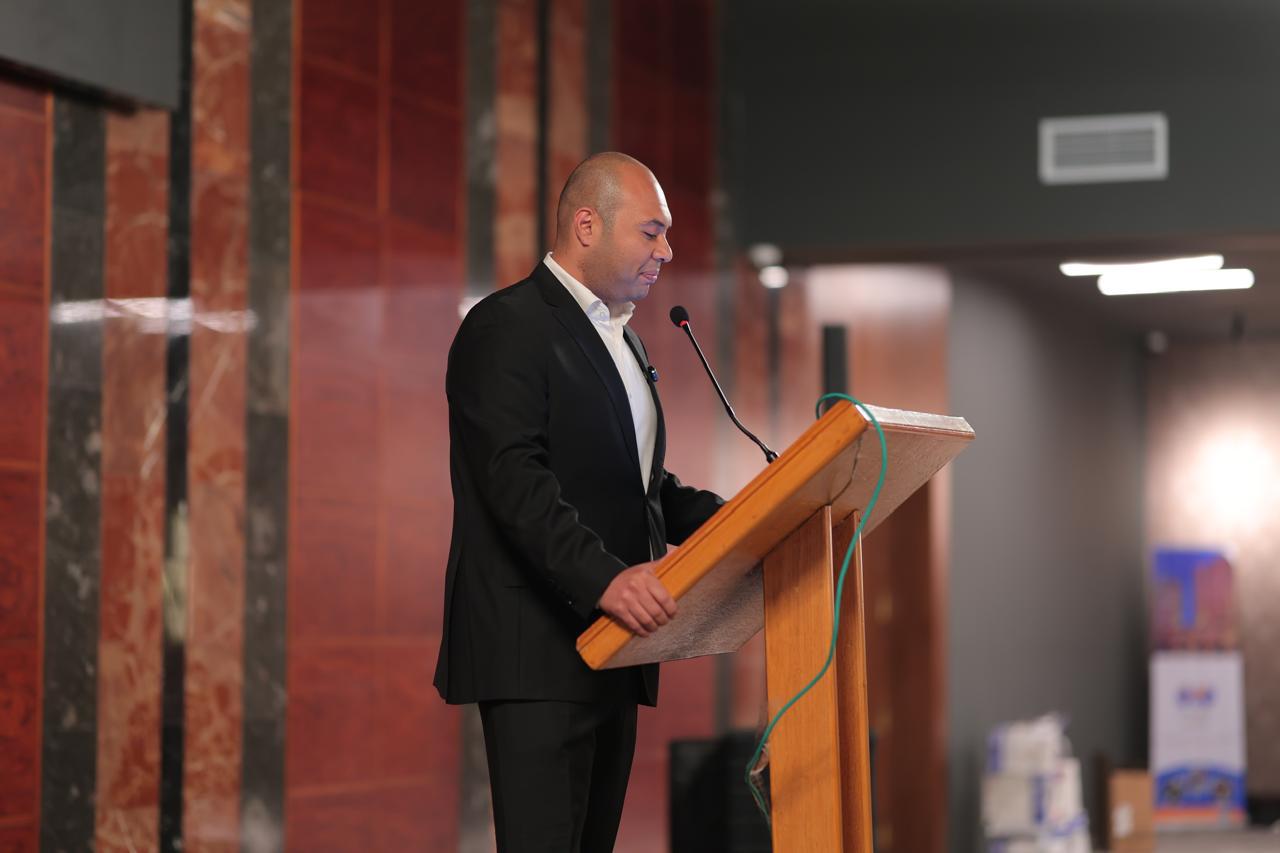Dubai- Masaader News
The COVID-19 pandemic has had a significant impact on many sectors around the world, especially on the Media and Entertainment sector, it can be said that there was a media before Covid-19and also a Covidization of Media Industry, or a Post-COVID Media, not only that, but it has become new patterns of remote work, or creating new communication tools, applications and how the virus will continue to change the way we live, from the traditional ways we build and live in cities to how we move between countries and cross borders.
The Covid-19 pandemic has affected many sectors around the world, where we can clearly see a noticeable difference between life before Covid-19 and post-Covid-19, for example in the education sector, healthcare, human resource management globally, or even the management and planning of governments towards the future.

As the Covid-19 pandemic has become a significant breakpoint between a traditional world and a world that is more prepared, thinking and arranged, with unfamiliar solutions and thinking outside the box, and facing challenges in all the challenges facing humans.
The Covid-19 crisis has turned from a global epidemic, to a way of creating ideas, and restructuring sectors in line with future global crises along the same or more complex lines, and just as the pandemic left many losses on some countries or sectors, it also left many advantages, which are not limited to material advantages only, but also in restructuring ways of thinking, government’s mindset, and using new tools and solutions that are more effective and impactful.
For instance, distance education, telecommuting, and communication between humans without direct contact has become a new and inevitable approach in a uncertainty future, between successive crises such as COVID-19, and necessity of invention new technological tools and solutions that are more effective and more capable of our future needs, and the rapid changes that may affect human capacity.
Countries and governments have become a top priority within their geographical borders among their citizens, and their interest in the idea of the global citizen has decreased to the idea of the interest of localization, where covid-19 has raised again the argument between Globalization vs Localization.
Covidization of Media Concept
And here I mean by this concept of Post-COVID Media (Covidization of Media Industry) is the type of changes and updates that have occurred in the media and Entertainment industry, whether in the press, radio, or television, or regarding any kind of the content creation for example in social media, smartphone applications and AI automation content . Those changes that relate to new patterns and forms in providing content, or new tools and technologies in reaching the audience, or related to new roles media and mass communications have played during the pandemic, which have become major functions in the post-Covid-19 era.
But how the Covid-19 pandemic has affect the media industry, did the media respond optimally, how did some media outlets have managed dealing with this crisis in terms of: the quality of the content, the nature of the mass communications and tools used, or the nature of the skills of human talents in supporting the best content and appropriate for the crisis to reach the target audience.
We have to say that; many changes have occurred in the Media and Entertainment sector, and the way that media big players are creating and delivering content during and after the COVID-19 pandemic.
Therefore, it can be said that the COVID-19 pandemic has affected the Media and Entertainment industry in what we can call (Post-COVID media) in terms of several levels:
· Covidization of the Media Industry is Creating New Patterns in the Media Content.
· Covidization of Media Industry is Creating New Tools and Solutions for “Media Channels” to Reach the Target Audience.
· Covidization of the Media Industry is Releasing New Roles and Responsibilities for the Media.
· Covidization of the Media Industry is Upgrading the Skills of the Media Communicators and Content Creators.
